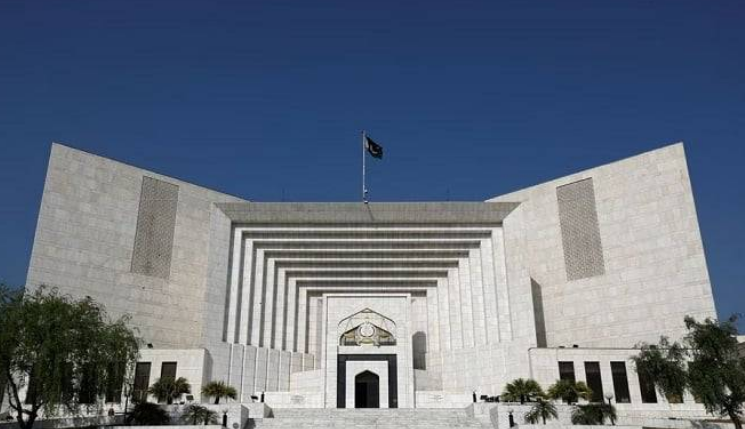Islamabad (Web Desk): The Supreme Court (SC) on Wednesday resumed hearing the petitions regarding the trial of civilians in military courts, with Advocate Salman Akram Raja, counsel for a convict in the May 9 episode, presenting arguments before the court.
The seven-member Constitutional Bench of the SC, headed by Justice Amin-ud-Din Khan, heard the petition.
Senior Advocates Sardar Latif Khosa, Barrister Aitizaz Ahsan, and Faisal Siddiqui are scheduled to present their arguments in the next session.
In response to a question from Justice Hasan Azahar Rizvi, Advocate Salman Raja stated that if a civilian is found guilty of espionage for a hostile country, they would be tried under the Official Secrets Act.
He emphasized that the trial procedure under this act is well-established.
Referring to the Kalbhoshan Jadhav case, Raja noted that in the modern era, it is impossible to suspend an individual’s fundamental rights and place them under the control of a commanding officer.
Raja further clarified that the provisions of Sections 2-1 and D2 of the Army Act were passed by Parliament in 1967, and he argued that the Supreme Court could review these sections without revisiting the FB Ali case.
Justice Jamal Mandokhail inquired whether the court is bound by its previous judgments or by the Constitution of Pakistan.
While acknowledging the high regard for the SC rulings, Salman Akram Raja responded that the Court is not bound by them.
Justice Mandokhail then asked, “What if the Constitution is amended?”
Raja replied, “The situation would change,” adding that Article 75 did not exist at the time of the FB Ali trial.
Raja also emphasized that court-martial procedures have evolved globally. He pointed out that trials behind closed doors are no longer conducted in this era, and even for military personnel, a 19th-century style court-martial would be inappropriate in 2025.
At this point, Barrister Aitizaz Ahsan informed the court that he had represented Major Ishtiaq and Ayaz Sipra in the FB Ali case.
He described how the trial took place in Attock Fort jail, with all records destroyed afterward.
Lawyers were subjected to body searches before leaving to ensure that no documents were taken out of the premises.
In a lighter moment, Justice Jamal Mandokhail asked Salman Akram Raja about his political affiliation, recalling that when Raja’s party was in power, it actively passed legislation regarding civilian trials in military courts.
Raja clarified, “I was not part of PTI at that time, and I have generally been aligned with the opposition.”
The proceedings were adjourned until Thursday.


